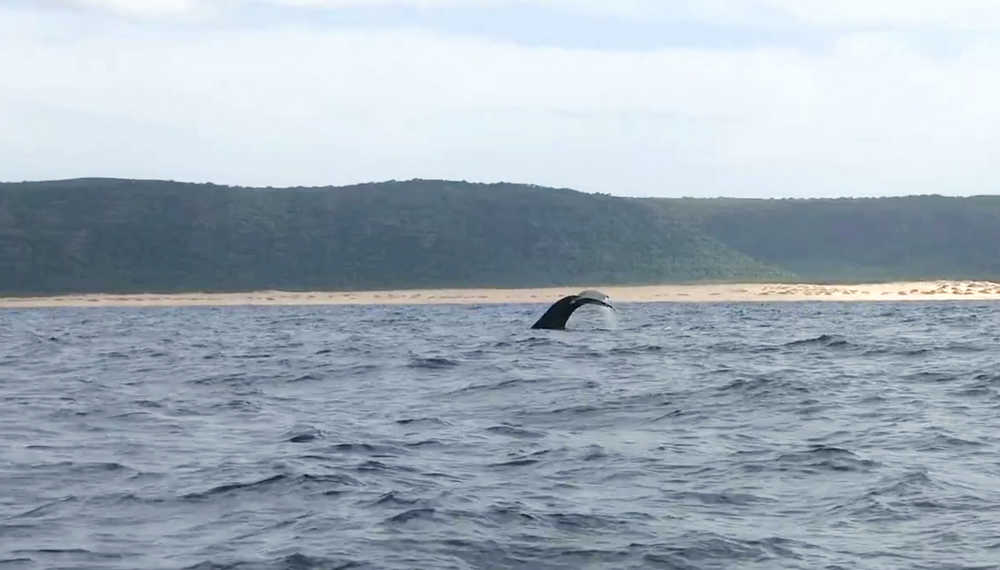HONOLULU — Humpback whales were spotted in the waters off Hawaii for the first time this season, leading officials to warn ships and recreational boaters to steer clear of the endangered visitors.
Researchers saw the first whale about a week ago off the small island of Niihau, near Kauai, the National Oceanic and Atmospheric Administration said in a news release Tuesday. A second whale was seen days later near Kauai’s Pacific Missile Range Facility.
Humpbacks normally arrive in the tropics in November and stay through May. There has been a general trend toward earlier arrivals in the past two decades, with the average in the past 10 years happening on Oct. 1, officials said. About 10,000 humpbacks winter in Hawaii each year.
Officials said boats should watch for and avoid the newly arriving whales. Ship strikes and entanglements can kill the animals and injure people on board.
“It’s important for everyone to be extra vigilant during whale season, for their own safety and the protection of the animals,” said Malia Chow, superintendent of the Hawaiian Islands Humpback Whale National Marine Sanctuary.
While researchers have little data on the number of fatal whale encounters with people, they know that boat strikes are common. Most times, the injured whales are devoured by sharks or sink after they die, so scientists don’t know about the encounter.
“The first day there’s like three sharks, the second day there’s 10,” said NOAA’s Ed Lyman, who monitors whale strikes and entanglements in the Pacific. “They make short work of eating a whale and it’s off the radar screen for us.”
About 50 percent of whales in heavily monitored parts of the Pacific Ocean have scars on their body that indicate they have been injured by human activity, Lyman said.
Federal officials proposed removing most of the world’s humpback whales from the endangered species list in April. The iconic mammal was on the verge of extinction when the international community banned whaling of the species nearly 50 years ago. The U.S. government listed it as endangered four years later.
But that doesn’t mean they will lack protections.
The whales would still be covered by the Marine Mammals Protection Act. Plus, the U.S. is a member of the International Whaling Commission, which banned commercial whaling in 1966.

